In the competitive digital landscape, the success of your eCommerce business often hinges on the effectiveness of your website design. A well-designed website not only attracts customers but also provides a seamless shopping experience that boosts conversions and brand loyalty. For businesses in vibrant cities like Los Angeles, New York, San Francisco, and beyond, partnering with a specialized web design agency is essential. This guide delves into why a Los Angeles-based web design agency is ideal for creating an impactful eCommerce presence and what services you can expect to transform your online store.
The Importance of a Specialized Web Design Agency
When it comes to eCommerce, the stakes are high. Unlike standard business websites, eCommerce sites need to handle transactions, manage extensive product catalogs, and offer a secure and user-friendly shopping experience. Here’s why partnering with a specialized web design agency makes all the difference:
Expertise in eCommerce Platforms: A specialized agency brings in-depth knowledge of popular eCommerce platforms like Shopify, WooCommerce, Magento, and BigCommerce. This expertise ensures that your site is built on the right foundation tailored to your business needs.
Custom Design and Development: Rather than relying on cookie-cutter templates, specialized agencies focus on bespoke designs that reflect your brand identity and resonate with your target audience.
Enhanced User Experience (UX): A strong UX design is critical in reducing bounce rates and increasing sales. With a focus on intuitive navigation, responsive layouts, and seamless checkout processes, a professional agency can optimize every aspect of the user journey.
Why Choose a Local Agency in Los Angeles?
Opting for a Los Angeles-based web design agency offers distinct advantages, particularly for businesses looking to establish or grow their eCommerce presence in the USA. Here’s why:
Understanding Local Market Trends: Los Angeles is a melting pot of cultures and a hub for various industries, making it crucial to have a design that appeals to a diverse customer base. A local agency has insights into regional preferences and can tailor your website accordingly.
Effective Local SEO Integration: A local agency is better equipped to implement location-specific SEO strategies, ensuring your eCommerce site ranks well in targeted areas like Los Angeles, New York, San Francisco, and Chicago.
Personalized Service and Communication: Working with a local team allows for smoother communication, quicker updates, and more personalized service. The proximity facilitates in-person meetings, allowing you to collaborate closely and bring your vision to life.
Key Services Offered by a Top Los Angeles Web Design Agency
Choosing the right web design agency involves understanding the range of services they offer. Here are some essential services provided by leading Los Angeles agencies for eCommerce:
Custom Website Development: Tailored solutions that reflect your brand identity and cater to your specific business needs, from unique layouts to personalized features.
UI/UX Optimization: Ensuring a seamless and intuitive user experience, focusing on aesthetics, ease of navigation, and customer satisfaction.
Mobile Optimization: With a significant percentage of online shoppers using mobile devices, responsive design is non-negotiable. Agencies ensure your site looks and performs well across all devices.
SEO and Content Strategy: Comprehensive SEO services, including keyword optimization, content creation, and link building, to boost your site’s visibility and drive organic traffic.
eCommerce Platform Integration: Expertise in integrating various eCommerce platforms (e.g., Shopify, WooCommerce, Magento), allowing for a scalable and robust online store setup.
Performance and Security: Implementing high-level security measures and optimizing website performance to enhance user experience and protect sensitive customer data.
Features of a High-Performing eCommerce Website
The key to a successful eCommerce website lies in its ability to offer an exceptional user experience. Here are the critical features that a high-performing site should have:
Fast Loading Speed: Page speed is crucial for retaining visitors. Slow loading times can lead to high bounce rates, negatively impacting your conversion rates and search engine rankings.
Mobile-Friendly Design: With mobile commerce on the rise, a responsive design that adapts seamlessly to different screen sizes is essential for capturing and retaining mobile users.
Secure Payment Gateways: Customers need to feel confident that their transactions are safe. Using trusted payment gateways (e.g., PayPal, Stripe) and SSL certificates helps build trust.
User-Friendly Navigation: A well-organized menu and search bar help users find products quickly, enhancing their shopping experience.
Optimized Product Pages: Detailed product descriptions, high-quality images, and user reviews are crucial for converting visitors into buyers.
The Role of SEO in Web Design for eCommerce
SEO is a fundamental aspect of web design that directly influences your site’s visibility and ranking on search engines. Here’s how SEO can be seamlessly integrated into your web design strategy:
On-Page SEO: Optimizing meta descriptions, title tags, headers, and image alt texts to include relevant keywords like “Los Angeles web design agency for eCommerce” helps improve your site’s visibility in search results.
Local SEO Strategies: Implementing local SEO tactics, such as optimizing Google My Business listings and using location-specific keywords, helps attract customers from targeted regions like New York, San Francisco, and Chicago.
Content Optimization: Creating valuable, keyword-rich content that addresses customer pain points can boost your ranking. Blog posts, product guides, and FAQs tailored to user queries can enhance engagement and reduce bounce rates.
Technical SEO: Ensuring a clean URL structure, fast loading times, and mobile responsiveness are key technical factors that search engines consider when ranking websites.
Case Studies: Success Stories from Los Angeles and Beyond
Real-world examples of successful eCommerce projects can provide insights into what works best in web design:
Fashion Retailer in Los Angeles: A local clothing brand partnered with a Los Angeles web design agency to revamp their outdated website. The redesign focused on mobile optimization, streamlined navigation, and an integrated Instagram feed, resulting in a 35% increase in sales.
Tech Startup in San Francisco: A tech company based in San Francisco needed a scalable eCommerce solution. The agency implemented a custom WooCommerce setup with advanced features like product filtering and one-click checkout, boosting their conversion rates by 50%.
Beauty Brand in New York: A beauty brand sought to enhance its online presence and sales through a Shopify redesign. The agency introduced a clean, minimalist layout with high-quality visuals and customer testimonials, leading to a 40% increase in user engagement.
Choosing the Right Platform: Shopify, WooCommerce, or Magento?
Selecting the right eCommerce platform is crucial for the success of your online store. Here’s a comparison of popular platforms:
Shopify: Best for businesses looking for a straightforward setup with a variety of apps and themes. It offers excellent customer support and is highly scalable.
WooCommerce: Ideal for WordPress users, offering extensive customization options and flexibility. It’s perfect for businesses with unique requirements or a need for a highly customized store.
Magento: Suitable for large-scale businesses needing a powerful and feature-rich platform. It requires more technical expertise but offers robust performance and scalability.
Essential Tips for Selecting the Best Los Angeles Web Design Agency for eCommerce

Choosing the right web design agency can be challenging, especially when aiming to rank highly in competitive markets like Los Angeles, New York, and San Francisco. Here are some vital tips to help you select the perfect partner:
Evaluate Their Portfolio
A strong portfolio is a clear indicator of the agency’s expertise and style. Review their past projects to assess their experience with eCommerce websites, especially within your industry. Look for sites with modern designs, smooth navigation, and user-friendly interfaces.
Check Client Testimonials and Reviews
Feedback from previous clients provides valuable insights into the agency’s reliability, quality of service, and client satisfaction. Use review sites like Clutch, UpCity, and Google My Business to read unbiased reviews.
Assess Their Technical Expertise
Ensure the agency has expertise in essential web technologies, including HTML5, CSS3, JavaScript, and popular eCommerce platforms like Shopify, WooCommerce, and Magento. Additionally, check if they have capabilities in integrating APIs, payment gateways, and advanced analytics tools.
Discuss SEO and Marketing Strategies
Ask about their approach to SEO and content marketing. The agency should provide services beyond design, including keyword optimization, site speed enhancement, mobile optimization, and content strategy, to help your eCommerce site rank well in search results for terms like “Los Angeles web design agency for eCommerce.”
Understand Their Project Management Process
Effective communication and a structured project management approach are key to delivering your project on time and within budget. Inquire about their process, timelines, and how they handle revisions.
Common Mistakes to Avoid When Designing an eCommerce Website
Many eCommerce businesses struggle with their online presence due to common pitfalls in web design. Here’s what to watch out for:
Neglecting Mobile Users
Over 60% of eCommerce traffic comes from mobile devices. Failing to optimize your site for mobile can result in poor user experience and lost sales. Ensure the design is responsive, with touch-friendly elements and easy navigation.
Poor Website Navigation
If users can’t find what they’re looking for quickly, they’re likely to leave your site. Use clear categories, filters, and a search bar to enhance user experience. Implementing breadcrumb navigation helps users track their location on the site.
Ignoring Site Speed Optimization
Slow websites can deter users from completing their purchases. Optimize images, use a content delivery network (CDN), and minimize the use of heavy scripts to improve loading times. According to Google, a loading speed under 3 seconds is crucial for a positive user experience.
Using Low-Quality Images
Product images are a significant factor in eCommerce. High-quality, detailed photos can increase engagement and conversions. Consider adding zoom features and multiple angles for a better shopping experience.
Complicated Checkout Process
A complex checkout process can increase cart abandonment rates. Keep the process simple by offering guest checkout, minimizing form fields, and providing multiple payment options.
Leveraging SEO to Rank Your eCommerce Site in Competitive Markets
In competitive areas like New York, San Francisco, and Chicago, effective SEO strategies are crucial for ranking. Here’s how to enhance your SEO performance:
Optimize Product Descriptions with Keywords
Incorporate relevant keywords naturally into product titles, descriptions, and meta tags. Use tools like Google Keyword Planner and Ahrefs to find high-volume, low-competition keywords related to your products.
Create Engaging Content
Regularly publish blog posts, product guides, and how-to articles that address common customer queries. Content marketing not only drives traffic but also helps establish your authority in the market. For instance, articles like “Top Web Design Tips for eCommerce Stores in Los Angeles” can attract local traffic.
Focus on Local SEO
Optimize your Google Business Profile, use local keywords, and get listed in local directories. This approach helps attract customers searching for services in specific locations like Los Angeles, New York, and San Francisco.
Improve Site Speed and Mobile Friendliness
Page speed and mobile usability are significant ranking factors. Use tools like Google PageSpeed Insights and GTmetrix to analyze and improve your site’s performance.
Build High-Quality Backlinks
Backlinks from reputable sites can boost your site’s authority. Collaborate with influencers, write guest posts, and participate in local business events to generate quality backlinks.
The Future of E-Commerce: Trends to Watch
The eCommerce landscape is continually evolving, and staying ahead of trends can give you a competitive edge. Here are some emerging trends to consider:
Rise of Voice Search
With the increasing use of smart devices, optimizing your site for voice search can help capture more traffic. Focus on conversational keywords and long-tail phrases to match user queries.
AI and Personalization
AI-driven tools help provide personalized shopping experiences by analyzing user behavior and preferences. Features like personalized product recommendations, chatbots, and automated customer service are becoming standard in modern eCommerce sites.
Social Commerce
Platforms like Instagram and Facebook are becoming integral to the eCommerce ecosystem. Integrating your online store with social media can drive traffic and sales directly from these platforms.
Augmented Reality (AR)
AR allows customers to visualize products in their real-life environment, enhancing their shopping experience. This technology is especially effective in industries like fashion and home décor.
Subscription Models
More businesses are adopting subscription-based models, offering convenience and regular engagement with customers. Examples include monthly subscription boxes or loyalty programs.
Maximizing Your ROI with a Los Angeles Web Design Agency
Partnering with a reputable web design agency can significantly impact your ROI by driving more traffic, increasing conversions, and enhancing the overall user experience. Here’s how you can maximize your returns:
Set Clear Objectives
Define specific goals for your eCommerce site, such as increasing sales, improving user experience, or enhancing brand visibility. Communicate these goals to your agency to align their efforts with your business vision.
Monitor Performance Metrics
Use analytics tools like Google Analytics and SEMrush to track key performance indicators (KPIs), such as bounce rate, conversion rate, and average session duration. Regular monitoring helps identify areas for improvement.
Test and Optimize
Regularly conduct A/B testing on elements like CTA buttons, product pages, and checkout processes to determine what works best for your audience. Even small changes can lead to significant improvements in conversions.
Invest in Ongoing SEO
SEO is not a one-time effort. Continuous optimization, content updates, and link-building activities are essential to maintain and improve your rankings.
Leverage Data for Personalization
Utilize customer data to create personalized experiences. Tailored product recommendations, targeted email campaigns, and personalized offers can significantly enhance customer satisfaction and boost sales.
FAQs on Los Angeles Web Design Agency for E-Commerce
Q. What services do Los Angeles web design agencies offer for eCommerce businesses?
Ans. Los Angeles web design agencies typically provide comprehensive services, including website design, user experience (UX) optimization, mobile responsiveness, SEO, and integration with eCommerce platforms like Shopify, WooCommerce, and Magento.
Q. How can a web design agency help my eCommerce business grow?
Ans. A professional web design agency can enhance your online store’s visual appeal, improve user navigation, optimize for search engines, and implement features like secure payment gateways, which together help boost conversions and customer satisfaction.
Q. What is the typical cost of hiring a web design agency in Los Angeles for eCommerce?
Ans. The cost varies based on the project’s complexity and the agency’s experience. Basic websites may start at around $5,000, while more complex, custom-designed eCommerce sites can cost upwards of $20,000.
Q. How long does it take to build an eCommerce website?
The timeline can range from 2 to 6 months, depending on the project’s scope, features, and customizations required. This includes time for planning, design, development, testing, and launching.
Q. What platforms do Los Angeles web design agencies commonly use for eCommerce sites?
Ans. Popular platforms include Shopify, WooCommerce, Magento, and BigCommerce. The choice depends on your business needs, product range, and budget.
Q. Do I need SEO for my eCommerce website?
Ans. Yes, SEO is essential for improving your website’s visibility in search engines, attracting organic traffic, and increasing sales. Effective SEO can help rank your site for keywords like “Los Angeles web design agency for eCommerce.”
Q. How can I choose the best web design agency for my eCommerce business?
Ans. Look for an agency with a strong portfolio, good client reviews, technical expertise in eCommerce platforms, and a clear understanding of SEO and marketing strategies.
Q. Can a web design agency help with mobile optimization?
Ans. Yes, most agencies offer mobile optimization services to ensure your eCommerce site is responsive and user-friendly on smartphones and tablets, catering to the growing number of mobile shoppers.
Final thought on Los Angeles web design agency for E-Commerce
Investing in a professional Los Angeles web design agency can transform your eCommerce business, helping you reach a broader audience and achieve your sales goals. By focusing on a user-friendly design, robust SEO strategy, and leveraging the latest industry trends, you can create an online store that stands out in competitive markets like New York, San Francisco, and Chicago.
Whether you’re just starting out or looking to revamp your existing site, partnering with the right agency can be a game-changer. Make sure to choose a partner that understands your vision, meets your technical requirements, and is committed to delivering a seamless user experience that keeps your customers coming back.



